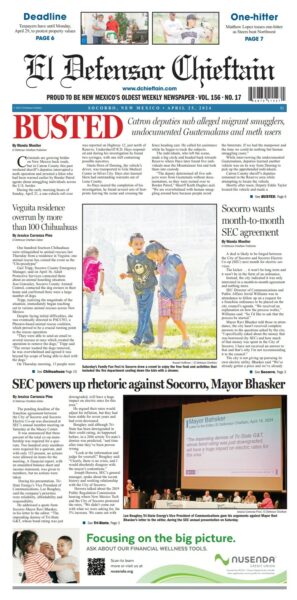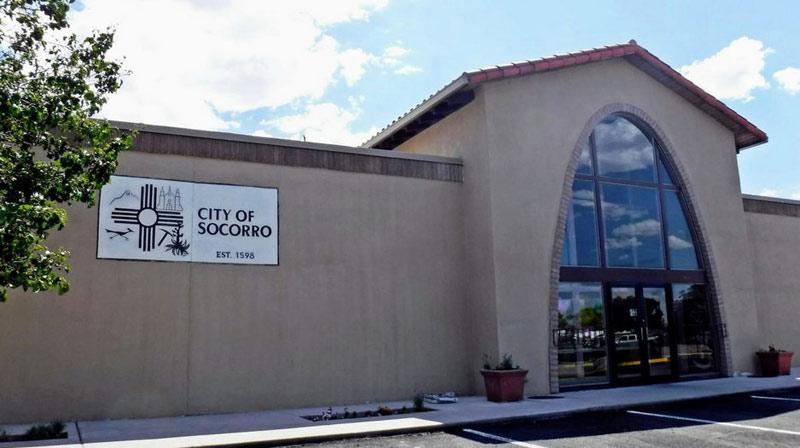People who need assessments for issues such as dyslexia or autism have customarily had to drive to Albuquerque for those evaluations. Thanks to a new enterprise, The Learning Path LLC in La Vida Center next to John Brooks, that is no longer the case.
Charlene Montoya, who heads up the service, worked with Socorro Consolidated School District and at Socorro High School for over 20 years.
“I started as a teacher, and then became the high school counselor, and left as one of the district’s diagnosticians,” she said. After retirement she joined forces with colleagues to open The Learning Path.
“We’re essentially dealing with issues of learning. Whether it’s executive functioning. Whether it’s autism. Whether it’s intellectual disability. Learning disabilities, such as dyslexia. All those types of issues.”
Montoya is well suited to the job, holding a doctorate in psychology. She is also a licensed educational diagnostician, a licensed mental health counselor, a licensed academic and career counselor and a certified Autism Spectrum Disorder clinical specialist.
“As a diagnostician, I would bring them in and interview them to understand what they’re having to deal with or having a difficult time with,” she said. “Then at that point, I would do assessments, and write a report.”
The client would then get the report, which could be given to the health care provider. Alternatively, the client could choose to have certain therapies done at the Learning Path offices.
“Unless we’re talking medical, which would be with their primary,” she said.
Occupational therapy for example, and speech therapy, which can be recommended after autistic evaluations, are available from The Learning Path.
“We really want to help with that,” she said. “Right now, it’s three years that an individual would have to wait even to get in to get diagnosed in Albuquerque. We want to relieve that because those are precious moments.
“Being a rural town in a low-income area, we want to be able to help those individuals. Especially, to me, the key is to get them diagnosed for treatment as early as possible. It could make a huge difference in their lifetime.”
Getting a diagnosis
Assessments and therapies include:
- Department of Vocational Rehabilitation assessments,
- autism assessments,
- learning disability assessments,
- dyslexia assessments,
- mental health assessments,
- educational therapies,
- developmental job coaching,
- social groups (intellectual disabilities, Down Syndrome and autism), and
- dyslexia therapies and
- mental health counseling.
“When there’s a problem obviously in school, in learning, the parents will be alerted to it,” she said. “I’ll do the assessments and see where we’re at with each client and then therapists on board will be providing various educational therapies.”
One issue, in particular, is dyslexia, which often goes undiagnosed.
“If they do have dyslexia, they will be passed to an educational therapist,” she said. “Even at the college level. Tech students that are having a difficult time and may feel they have a reading disorder of some type, say dyslexia, would come in, and I would see if they were or are not dyslexic, and if they were I would write a report.”
The report would then go to the school, and they would be given some accommodations to help. Accommodations could include more time for reading assignments or to take tests.
Staff with expertise
The Learning Path’s rotating staff includes an occupational therapist, an occupational therapist assistant, a speech/language pathologist and a developmental specialist.
Montoya’s partner Carey Hall-Walker is an educational therapist and developmental job coach She has a bachelor’s in Human Services with Child and Family Concentration, with a minor in psychology.
“She was raised here in Socorro and is looking forward to giving back to the community,” Montoya said.
Free service for first responders
Montoya and The Learning Path staff are also committed to giving back to the community, in the form of free mental health services to all first responders: fire, law enforcement and EMS.
“I am a veteran, and I was also raised in a retired police officer’s family,” she said. “So, I just felt like that group of individuals often don’t like to get their mental health issues addressed because of the stigma, especially in their line of work. They see a lot in the job that they do, and sometimes they just need to process it.”
She said the free first responder appointments won’t show up on their insurance.
“It would just be clinical notes and that’s it. They won’t have to let anybody else know that they’re coming to see someone,” she said. “We can schedule them over the phone, or they can just come in.
“We are getting a system up now that they can schedule online. All of that will be available, depending on how much discretion they want. And it could be outside of normal office hours.”
Montoya said they will be connecting with other agencies in town and already got a contract with the Department of Vocational Rehabilitation in Socorro.
“That’s for our adults,” she said. “If a kid leaves the school system with an IEP (Individual Educational Plan), the next entity that takes over would be DVR, the group that would assist them to go to college or to go to a trade school. To go into the workforce.”
To do that, they would need to be diagnosed, so they could know what accommodations could be put in place, said Montoya, which is where The Learning Path comes in.
“What we’re focusing on is groups that tend to fall through the cracks,” she said. “We’re here to address all of that.”
Working with local doctors is an example.
“We’re visiting the local physicians’ offices to let them know that if they start seeing some developmental issues to send them over so we can do the appropriate assessments and turn those assessments back over to the doctor,” she said. “Then they can decide if the individual may need more medical assistance or developmental assistance.”
In a lot of cases, Medicaid will cover much of the cost, she said.
“Our main goal is to help that segment be either confirmed diagnosed or not, and if they are, to implement those strategies and therapies right away,” Montoya said. “It is challenging, and that’s why we try to do that one-stop-shop where they can get it all in one location.”


















